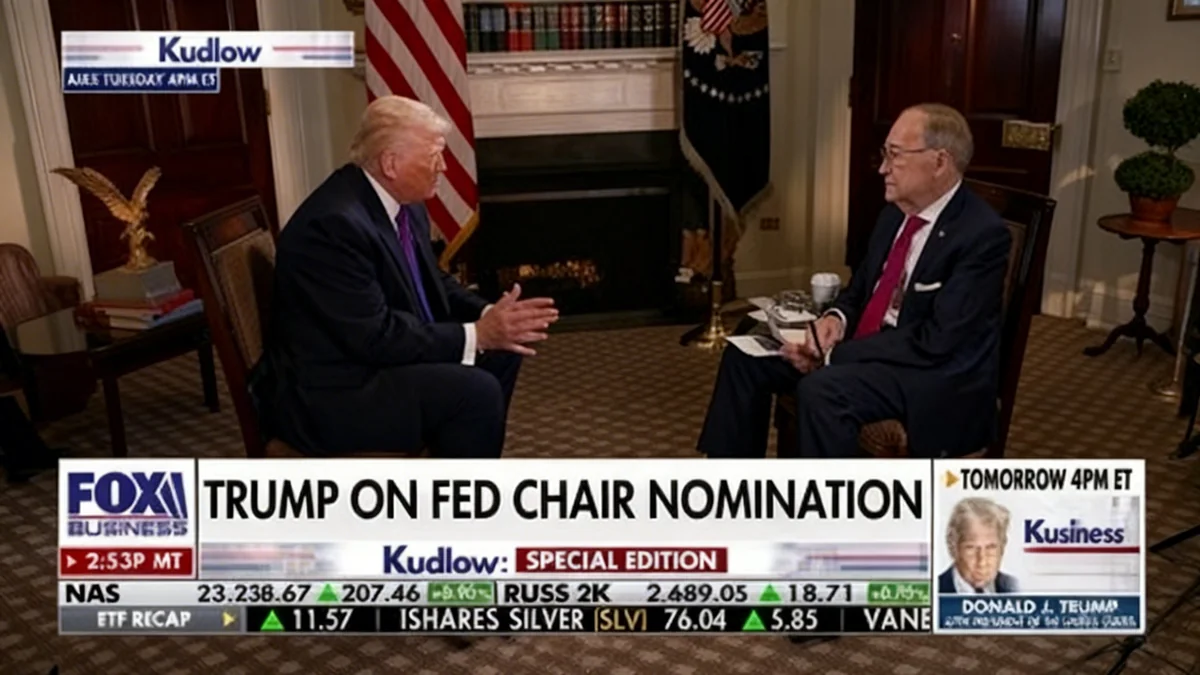The U.S. Federal Reserve implemented its first interest rate reduction of the year, lowering the benchmark rate by 25 basis points. The decision, announced Wednesday, has drawn sharp criticism from a senior White House advisor and sparked debate among economic and real estate experts about its adequacy in stimulating the economy and addressing a stalled housing market.
Key Takeaways
- The Federal Reserve cut its benchmark interest rate by 25 basis points, setting the new target range at 4.0% to 4.25%.
- White House trade advisor Peter Navarro heavily criticized the move, calling for a more aggressive 50-basis-point cut and labeling the Fed's policy "incompetence."
- Real estate professionals suggest the rate cut could provide a needed boost to a housing market hampered by high borrowing costs.
- The decision comes as the Trump administration reportedly considers declaring a national housing emergency due to high rates and construction costs.
Federal Reserve Enacts Widely Expected Rate Cut
On Wednesday afternoon, the Federal Open Market Committee (FOMC) concluded its meeting with an announcement to lower the federal funds rate. The 0.25 percentage point reduction is the first such move this year and adjusts the target range for the key interest rate to between 4.0% and 4.25%.
This decision was largely anticipated by financial markets. According to data from the CME FedWatch tool, traders had priced in a 96% probability of a 25-basis-point cut ahead of the announcement. The likelihood of a larger, 50-basis-point reduction was seen as a distant possibility, with only a 4% probability.
The central bank's move is an attempt to navigate a complex economic landscape. Officials are weighing concerns about a potentially slowing labor market against inflationary pressures, some of which are attributed to ongoing tariffs.
What is a Basis Point?
In finance, a basis point is a common unit of measure for interest rates and other percentages. One basis point is equal to 1/100th of 1%, or 0.01%. Therefore, a 25-basis-point cut means the interest rate was lowered by 0.25 percentage points.
White House Advisor Calls for More Aggressive Action
The Fed's decision was met with immediate and forceful disapproval from the White House. Peter Navarro, a senior counselor for trade and manufacturing in the Trump administration, described the central bank's policy as a significant barrier to economic growth.
Speaking on "Mornings with Maria," Navarro argued that the current interest rates are far too high. "We're a hundred basis points, at least, over where we should be," he stated. He called for much deeper cuts to stimulate the economy.
"It should be 50 [basis points cut] today, and it should be another 50 at the next meeting. That's where it should be," Navarro continued.
Navarro directly criticized the leadership of Fed Chairman Jerome Powell, whose tenure he characterized as "a disaster." He dismissed arguments that such criticism undermines the central bank's independence, framing the issue as one of performance. "People talk about [how] an attack on Powell's an attack on Fed independence. It's not, it's Fed incompetence," he said, suggesting that policy decisions were partisan.
Impact on the American Housing Market
A primary focus of the criticism revolves around the U.S. housing market. High interest rates have increased the cost of mortgages, making homeownership less affordable for many Americans. Navarro claimed the Fed's policy has "frozen up the housing market" and is hurting "everybody who's trying to get a mortgage."
This sentiment is echoed within the real estate industry. Joe Azar, a managing director with Douglas Elliman in Miami, expressed hope that a rate cut would invigorate the market. "In the brokerage community, we would love to see a rate cut anywhere from a quarter to a half-point. Ideally, a half a point," Azar told Fox News Digital.
He predicted a tangible impact from the Fed's action. "I think you'll see a jolt in the real estate market if we get a cut this afternoon," he said prior to the announcement. For potential homebuyers, Azar explained, even a small reduction can make a significant difference in affordability and purchasing power.
A National Housing Emergency?
The discussion around interest rates is taking place as the Trump administration is reportedly considering a declaration of a national housing emergency. This potential move is said to be a response to a combination of high borrowing costs, regulatory hurdles, and rising construction expenses that have constrained housing supply and affordability.
Beyond the Federal Funds Rate
While the Fed's decision directly impacts short-term borrowing, real estate experts note that homebuyers and sellers also monitor other financial indicators. Azar pointed out that the 10-year and 5-year Treasury yields are closely watched as they often influence long-term mortgage rates.
He suggested that the Fed's cut to short-term rates would most directly affect adjustable-rate mortgage (ARM) loans. These loans have interest rates that are fixed for an initial period but then fluctuate based on broader market rates.
Political Pressure and Fed Independence
The public calls for specific policy actions from the White House and Congress highlight the political pressure surrounding the Federal Reserve, an institution designed to operate independently of short-term political influence.
Senator Tim Scott, Chairman of the Senate Banking Committee, also advocated for lower rates. In a call with Fox News Digital, he said he conveyed to a Fed Board governor "the president's vision for what moves our economy forward." While stressing the importance of the Fed's independence, he also suggested a rate cut was a key element needed to support the administration's economic progress.
"The president has done such a good job of moving our country forward," Senator Scott commented. "What else does he need? One big thing – I think a lower interest rate."
The debate continues over whether the Fed's modest 25-basis-point cut is a sufficient measure to support economic expansion and unfreeze the housing market, or if the more aggressive action demanded by critics was warranted.





